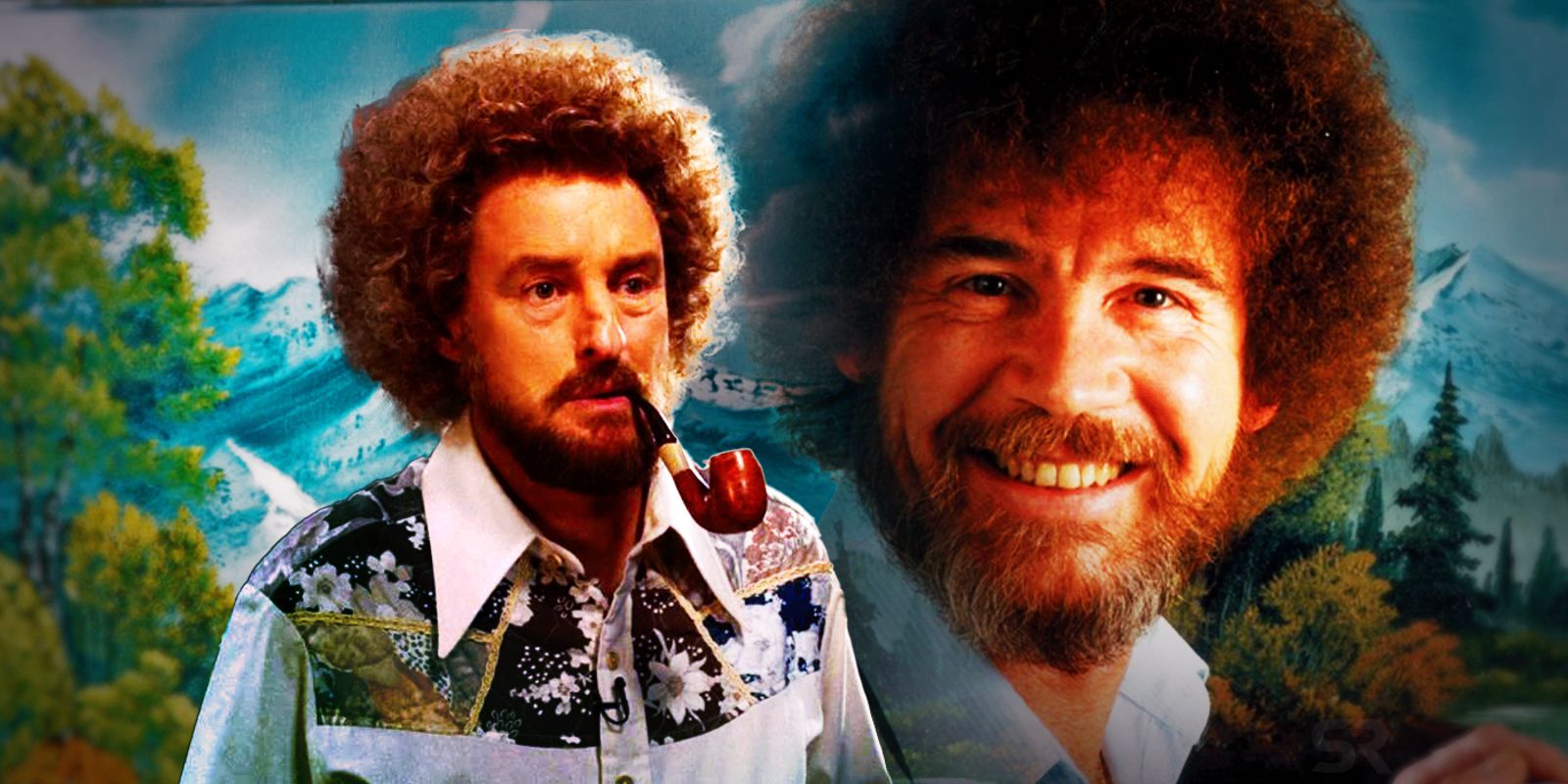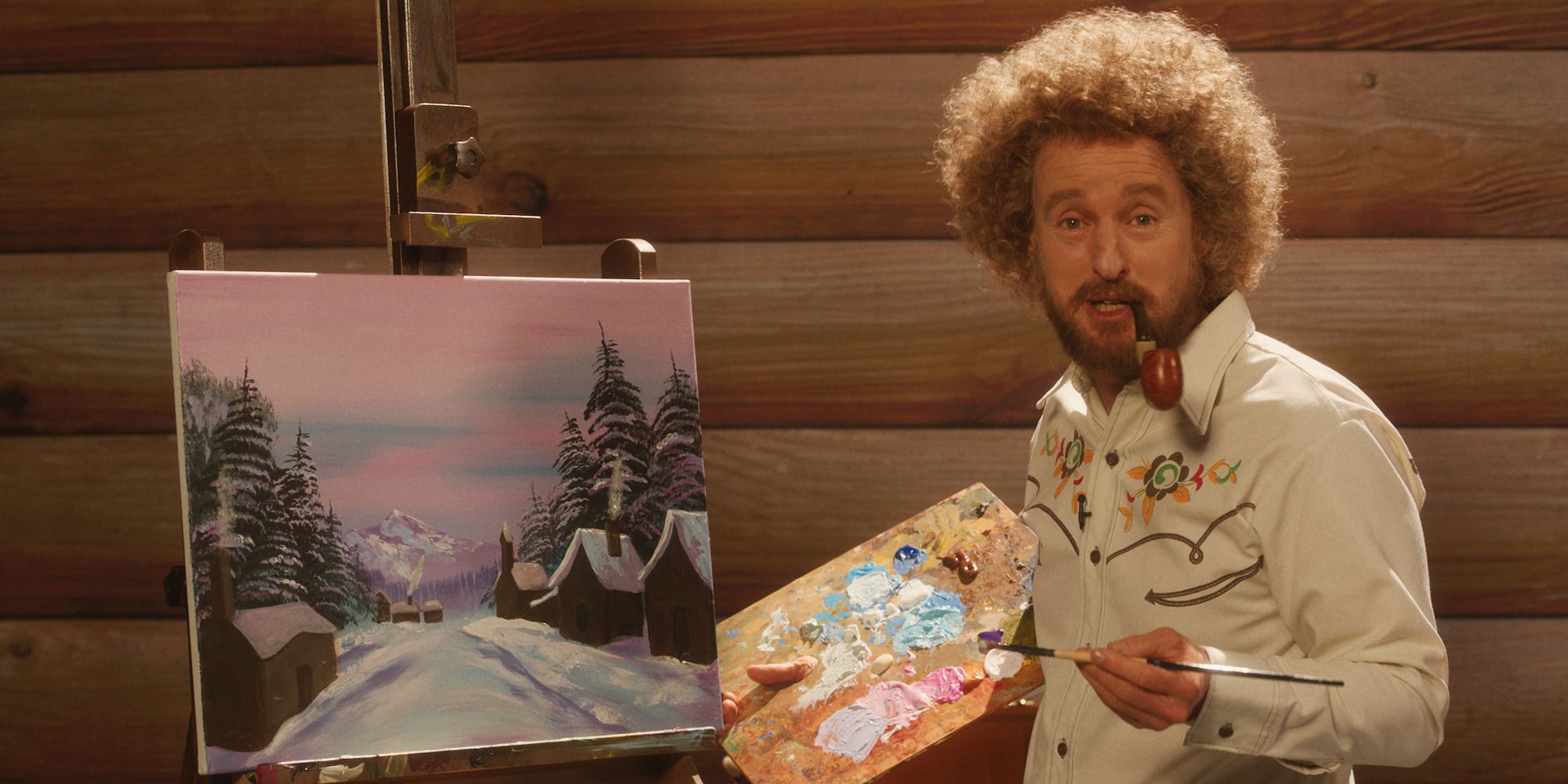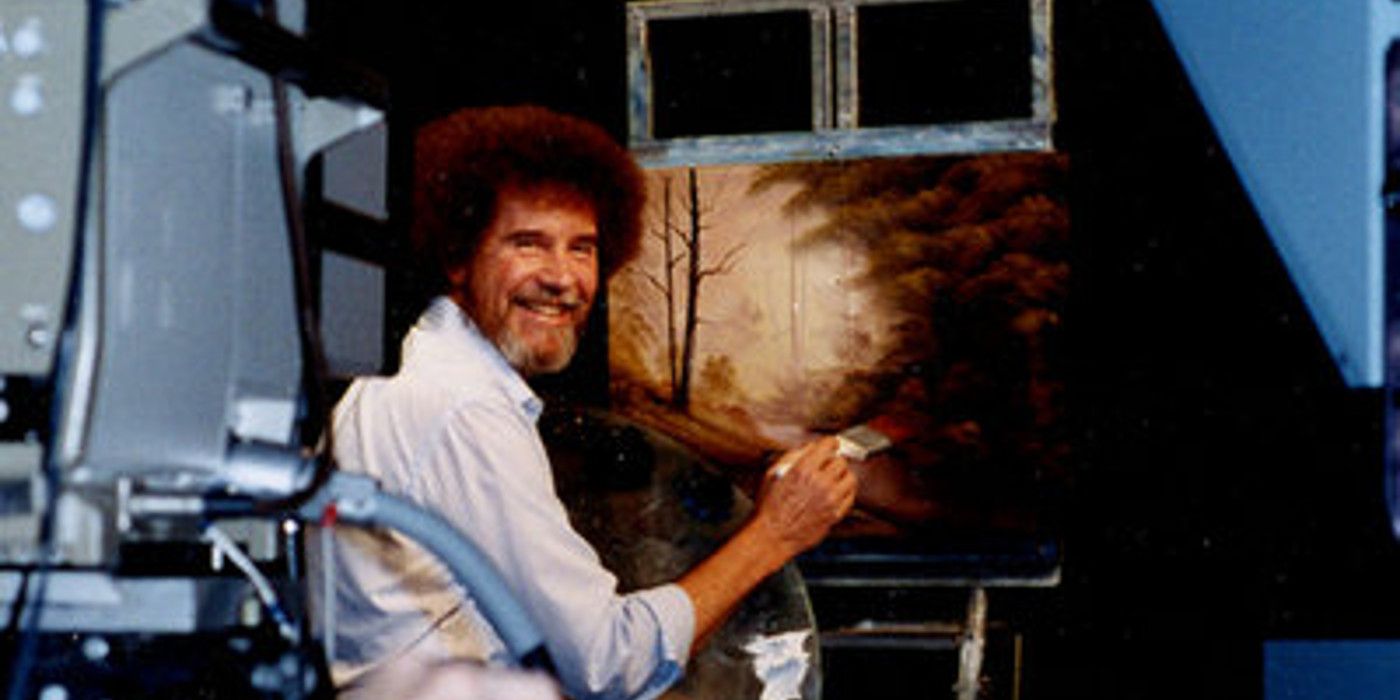WARNING!: Contains SPOILERS for Paint.In Paint, Owen Wilson stars as Carl Nargle, a Bob Ross-inspired host of a public access painting show, but a better Bob Ross movie already exists. Using his penchant for playing protagonists with laid-back personal philosophies, Wilson portrays Carl as an artist hoping to inspire viewers at home to express themselves, regardless of talent, but his method of instruction, using dulcet tones to calmly walk them through painting Mt. Mansfield repeatedly, is seen as old-fashioned by the channel that's made him a local Vermont celebrity. Eventually, a younger, more innovative artist (Ciara Renée) is brought in to revamp the show and Carl has to rethink his purpose in life.
Some might find Owen Wilson's new movie insulting to Bob Ross because, at one point, it chooses to focus on the darker side of Ross' persona via Carl, which involved the painting host being accused of womanizing and fraternizing with the women involved in his public access channel. It's a surprising revelation for someone who, to most fans, always came across as a wholesome figure, but it's not even the most shocking part of Ross' life. Another film from 2021 shows the nitty-gritty of not just his broadcasting career, but also his death, and all the sordid things that occurred once the vultures circled over his brand and empire.
Netflix Made A Better Bob Ross Movie Than Paint
In 2021, Netflix made the documentary Bob Ross: Happy Accidents, Betrayal, and Greed, which chronicles Ross' life, death, and what happened to his company after he died. While hosting The Joy of Painting from 1983 until 1994, Ross also established Bob Ross Inc., which sold books, painting kits, and instructional videos to anyone hoping to either paint like him for fun or become certified to teach others his "wet on wet" method. At the time of his death, his net worth was only $1 million, but that didn't include profits made using his name, his likeness, and selling off his own personal collection of artwork.
Since his death in 1995 from lymphoma, Bob Ross Inc. has licensed Ross' image for everything from Halloween costumes to Chia Pets, and original Bob Ross paintings, of which there are 30,000 in existence, also gain the holding company as much as $10,000 per piece. Under Bob Ross Inc.'s terms of incorporation, if a partner dies, their stock is divided equally among the remaining partners, leading to Annette and Walt Kowalski ending up with sole ownership of Bob Ross Inc. and everything to do with the famous television artist. By comparison, Carl's identity crisis seems vapid because he feels like a caricature instead of a real person.
Bob Ross Lost His Entire Painting Empire To One Greedy Family
The Kowalskis not only gained control of Bob Ross Inc., but they also tried to persuade Ross to give them his estate before his death, and when he left it to his son Steve and half-brother Jimmie Cox, they contested the will. Most fans assume Bob Ross made a cozy little fortune from his broadcasts and retired, but he was taken for everything he had from people he trusted, who eventually were given the rights to Ross' name, likeness, voice, and recorded work after several lawsuits throughout the '90s. Ross' identity and legacy were jeopardized in a way that's more urgent and profound than Carl's dry narrative in Paint.
Whether Netflix trolled Bob Ross fans or not by focusing on such sordid details of his life rather than all the positivity it generated, the truth needed to be told. Ross has been an indelible part of pop culture for decades, appearing in TV shows like Family Guy, movies like Deadpool, Magic: The Gathering sets like "Happy Little Gathering," Twitch streams of Joy of Painting marathons, and some of his "happy little trees" even hang in the Smithsonian National Museum of American History. Bob Ross: Happy Accidents, Betrayal, and Greed highlights why his legacy remains so important, while Paint parodies it.



